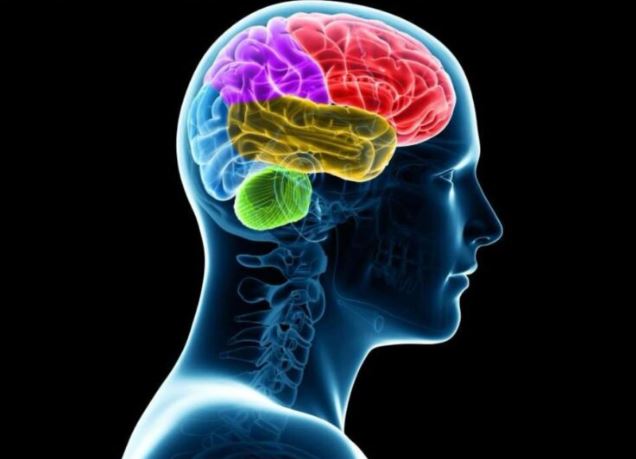Last updated on January 14th, 2025
In today’s fast-paced digital world, our brains are constantly under attack from poor habits, stress, and overstimulation. Two critical factors silently undermining brain health are brain rot and insomnia. These issues not only impact mental clarity but also degrade cognitive performance, emotional stability, and overall wellness. For individuals following a plant-based lifestyle or seeking holistic health solutions, understanding these threats and taking actionable steps can make all the difference in protecting your mind and body.
Understanding Brain Rot: A Slow Decline in Mental Sharpness
While “brain rot” is not a medical term, it effectively captures the mental stagnation caused by passive habits and lack of intellectual stimulation. In our screen-driven lives, many experience this phenomenon daily—endless scrolling through social media, excessive consumption of low-value content, or engaging in repetitive tasks that fail to challenge the mind.
How Brain Rot Develops
- Underutilisation: The brain is designed to solve problems, create, and think critically. However, in the absence of challenging intellectual stimulation, neural pathways weaken leading to cognitive decline. It is akin to how muscles atrophy when not exercised.
- Overstimulation: On the flip side, constant exposure to passive and superficial content—think endless scrolling through social media or excessive consumption of TV shows—tricks the brain into thinking it’s active when, in reality, it’s barely engaged. The overstimulation from screens and social media floods the brain with dopamine, leaving little capacity for deep thinking or reflection.
Signs and Symptoms of Brain Rot
- Difficulty focusing or maintaining attention.
- Reduced creativity and problem-solving ability.
- Mental fatigue and persistent “fog.”
- Increased feelings of dissatisfaction or anxiety.
Long-Term Risks
When unchecked, brain rot can lead to chronic stress, depression, and even long-term cognitive impairments. It’s a vicious cycle: the more passive and overstimulated your mind becomes, the harder it is to engage in meaningful activities that stimulate mental growth.
Insomnia: The Brain’s Nightly Struggle
Unlike brain rot, insomnia is a medically recognised condition that affects millions of people globally. Insomnia is defined as the persistent inability to fall or stay asleep that has a profound impact on brain health. It deprives the brain of its essential recovery time as sleep is a cornerstone of good health. It is not merely a period of rest; it’s a time when the brain undergoes critical processes like memory consolidation, toxin removal, emotional regulation and brain repairs
Types of Insomnia
- Acute Insomnia: Short-term sleeplessness, often caused by stress or a sudden change in environment.
- Chronic Insomnia: Long-term sleep disturbances that occur at least three nights a week for three months or more.
The Science of Sleep and Its Impact on Brain Health
- Memory Consolidation: During deep sleep, the brain processes short-term memories and stores them as long-term knowledge. Chronic sleep deprivation disrupts this process.
- Toxin Removal: Sleep facilitates the removal of waste products like beta-amyloid proteins. Without adequate rest, these toxins accumulate, increasing the risk of neurodegenerative diseases.
- Emotional Regulation: Sleep balances stress-related chemicals, such as cortisol. Poor sleep heightens emotional reactivity, leading to anxiety and mood swings.
Chronic Insomnia: The Hidden Dangers
Over time, insomnia contributes to:
- Reduced cognitive performance.
- Increased risk of dementia and Alzheimer’s disease.
- Compromised immune function.
- Greater susceptibility to anxiety and depression.
The Connection Between Brain Rot and Insomnia
Brain rot and insomnia are deeply interconnected, often exacerbating each other in a vicious cycle:
- Digital Overload Disrupts Sleep: Late-night screen time suppresses melatonin production, delaying sleep onset.
- Under-Stimulated Brains Stay Restless: A lack of meaningful engagement during the day often leaves the mind unsettled at night.
- Sleep Deprivation Worsens Cognitive Decline: Insufficient sleep weakens the brain’s ability to process and retain information, making intellectual pursuits more challenging
This dynamic makes addressing both issues simultaneously critical to restoring optimal brain health.
How to Combat Brain Rot and Insomnia
The good news? With intentional lifestyle adjustments, it’s possible to reverse the effects of brain rot and insomnia. Here are some strategies to reclaim your mental clarity and protect your brain:
1. Prioritise High-Quality Nutrition for Brain Health
A plant-based diet rich in whole, organic foods supports cognitive function and improves sleep quality.
- Omega-3 Fatty Acids: Found in flaxseeds, chia seeds, and algae-based supplements, omega-3s are essential for brain health and reducing inflammation.
- Magnesium-Rich Foods: Dark leafy greens, almonds, and bananas help relax the nervous system and promote better sleep.
- Antioxidant Powerhouses: Berries, green tea, and dark chocolate combat oxidative stress that damages brain cells.
- Herbal Support: Chamomile, ashwagandha, and valerian root are known for their calming properties and ability to improve sleep.
2. Adopt a Sleep-Friendly Routine
Optimising sleep hygiene is essential to combat insomnia:
- Stick to a Schedule: Go to bed and wake up at the same time daily to regulate your circadian rhythm.
- Create a Calming Environment: Keep your bedroom dark, cool, and quiet. Consider using blackout curtains and a white noise machine.
- Limit Stimulants: Avoid caffeine, alcohol, and heavy meals before bed. Instead, try a soothing chamomile tea to wind down.
- Digital Detox Before Bed: Reduce screen time at least one hour before sleep to allow your brain to prepare for rest.
3. Stimulate Your Brain Daily
Break free from mental stagnation by challenging your mind:
- Learn Something New: Take up a new hobby, learn a language, or explore a creative outlet like painting or writing.
- Solve Puzzles and Games: Activities like Sudoku, crosswords, or strategy games keep the brain sharp.
- Engage in Meaningful Conversations: Deep, stimulating discussions foster critical thinking and emotional connection.
4. Embrace Physical Activity
Exercise has a profound impact on both mental and physical health:
- Cardio for Cognitive Boosts: Running, cycling, or swimming increases blood flow to the brain, improving mental clarity.
- Yoga and Stretching: These practices help reduce stress, prepare the body for sleep, and promote relaxation.
- Daily Movement: Even a short walk or light stretching during breaks can rejuvenate your mind and body.
5. Reduce Screen Time and Digital Dependency
Technology overload is a primary contributor to both brain rot and insomnia:
- Limit Passive Consumption: Replace mindless scrolling with engaging activities like reading or journaling.
- Implement Screen-Free Hours: Dedicate specific times of the day to unplug from devices and focus on offline experiences.
- Choose High-Value Content: Engage with educational or inspiring material rather than low-value entertainment.
Holistic Practices to Restore Balance
For plant-based enthusiasts, incorporating holistic practices into your routine can further enhance brain health:
- Mindfulness Meditation: Daily mindfulness helps calm an overactive mind, improving focus and sleep quality.
- Plant-Based Supplements: Vegan omega-3s, B-complex vitamins, and adaptogens like maca root can support cognitive function and stress management.
- Hydration with Purpose: Drink herbal teas like chamomile or peppermint to relax your nervous system and prepare for restful sleep.
The Bright Side: Your Brain Can Heal
The brain is incredibly resilient, capable of forming new neural pathways and recovering from damage when given the right conditions. By addressing the root causes of brain rot and insomnia, you can:
- Regain mental clarity and focus.
- Enhance creativity and problem-solving skills.
- Improve emotional resilience and overall mood.
- Enjoy better sleep and higher energy levels.
Take Control of Your Brain Health
In a world full of distractions and pressures, prioritising brain health is more important than ever. By adopting plant-based nutrition, establishing sleep-friendly habits, and engaging in meaningful activities, you can protect your cognitive function and unlock your brain’s full potential.
At Veganisus, we’re committed to empowering you with knowledge and products that support your wellness journey. Explore our range of plant-based superfoods and supplements designed to nourish your mind and body. Together, let’s build a future where vibrant health and sharp minds are within everyone’s reach. Ready to transform your brain health? Discover more resources and products at Veganisus today!







